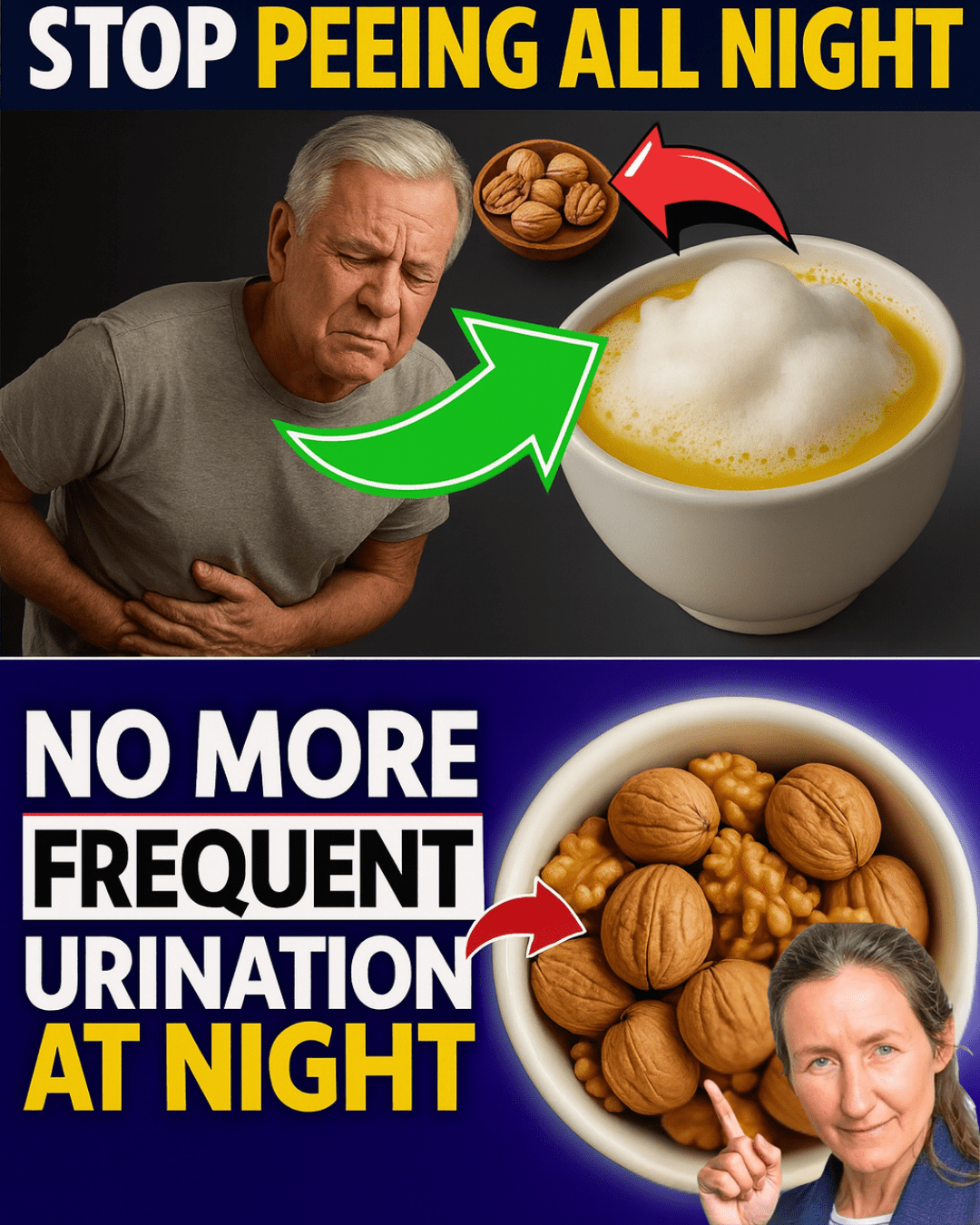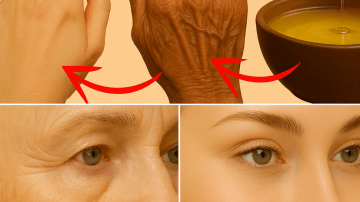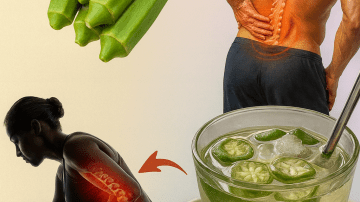Waking up multiple times a night for a bathroom trip—a condition known as nocturia—is more than just an inconvenience; it’s a sleep destroyer and a significant drain on your overall health and energy. You likely feel that exhaustion creeping in every morning, desperately seeking a solution. While many factors contribute to frequent nighttime urination, a major, often-overlooked culprit is unstable blood sugar or prostate and bladder irritation. But what if the key to reclaiming your deep, uninterrupted sleep wasn’t a pharmaceutical, but a simple, satisfying snack? Prepare to be amazed. We are diving deep into the science behind the Top 3 Nuts that can dramatically stabilize your blood glucose and soothe your bladder, effectively turning your night into a peaceful, pee-free experience. If you are tired of counting bathroom trips instead of sheep, read every word of this crucial guide.

The Hidden Link: Blood Sugar, Bladder, and Broken Sleep
To understand why these nuts are so powerful, you must first grasp the connection between blood sugar regulation and your nightly bathroom routine. This is the core mechanism we are targeting.
- 🩸 The Blood Sugar Effect (Osmotic Diuresis): When blood sugar levels (glucose) are too high, the kidneys work overtime to filter out the excess sugar. Glucose is an osmotically active molecule, meaning it pulls large amounts of water along with it. This massive amount of fluid gets pulled into the urine, resulting in excessive urine production (polyuria), which becomes highly problematic at night (nocturia). Stabilizing blood sugar is the number one natural step to reducing urine volume.
- 🧡 Prostate/Bladder Irritation: For men, an enlarged or irritated prostate can press on the urethra, making it difficult to empty the bladder completely. For both genders, chronic inflammation or irritation within the bladder lining (often exacerbated by high sugar intake) can cause a false sense of urgency, triggering frequent wake-ups.
- 😴 The Sleep-Hormone Connection: Healthy sleep relies on the nighttime release of Antidiuretic Hormone (ADH), which signals the kidneys to produce less urine. Fragmented sleep due to nocturia disrupts this hormonal balance, creating a vicious cycle of waking up to pee and peeing more because you woke up.
The Top 3 Nocturia-Fighting, Blood Sugar-Balancing Nuts
These three powerhouse nuts are specifically chosen for their unique combination of healthy fats, fiber, magnesium, and anti-inflammatory properties that directly address the root causes of nighttime urination.
1. 🌰 The Walnut: Omega-3s and Sleep Support
Walnuts are often hailed as a brain food, but their benefits for blood sugar control and sleep quality make them an unmatched weapon against nocturia.
- ✨ Omega-3 Alpha-Linolenic Acid (ALA): Walnuts are the richest plant source of ALA. These healthy fats are powerful anti-inflammatories that help improve insulin sensitivity. When your body uses insulin more effectively, blood sugar stabilizes, and the kidney’s workload is reduced. Less sugar in the urine means less fluid pulled into the bladder.
- 😴 Melatonin Content: Walnuts naturally contain melatonin, the hormone that regulates sleep cycles. Consuming them in the evening can help support the natural release of sleep hormones, promoting deeper, more restorative sleep and, crucially, a stronger release of ADH. This helps your body hold fluids through the night.
- 💪 Magnesium and Fiber: The combination of magnesium and fiber further contributes to slower glucose absorption from your dinner, preventing the blood sugar spike that can trigger nighttime polyuria.
How to Use Walnuts: Consume a small handful (about 7 whole walnuts) 1-2 hours before bedtime.

2. 🎃 The Pumpkin Seed (Pepita): Bladder & Prostate Fortress
While technically a seed, we include the pumpkin seed because its targeted benefits for urinary and prostate health are absolutely indispensable for tackling nocturia.
- 🧡 Zinc for Prostate Health (Men): Pumpkin seeds are one of the best dietary sources of zinc. Adequate zinc intake is crucial for men, as deficiency is linked to prostate enlargement (Benign Prostatic Hyperplasia or BPH). BPH is a major cause of nocturnal frequency. Zinc supports healthy prostate size and function, relieving pressure on the urethra and bladder neck.
- 🛡️ Phytosterols and Linoleic Acid: These compounds have been shown in multiple studies to support bladder muscle function and potentially reduce the symptoms of an overactive bladder (OAB) and nocturia. They help soothe the irritation that causes the frequent urge to urinate.
- 💤 Tryptophan for Calming Sleep: Pumpkin seeds contain tryptophan, an amino acid the body converts into serotonin and then melatonin. This adds another layer of natural sleep support, ensuring deeper, uninterrupted rest.
How to Use Pumpkin Seeds: Incorporate 1/4 cup of raw, unsalted pumpkin seeds into your late afternoon snack or sprinkle them onto your dinner salad.
3. 🥜 The Almond: The Magnesium and Fiber Powerhouse
Almonds are an all-star nut, and their specific nutritional profile makes them a highly effective tool for consistent, slow-release energy and blood sugar balance.
- ⚖️ Magnesium Control: Almonds are extremely rich in magnesium. Magnesium plays a fundamental role in over 300 biochemical reactions, including glucose metabolism. Studies show that magnesium deficiency is common in people with poorly controlled blood sugar. Consuming almonds helps replenish these stores, dramatically improving insulin signaling.
- 📈 Low Glycemic Impact: Despite being calorie-dense, almonds have a very low glycemic index. Their high fiber and protein content ensures that they cause virtually no spike in blood sugar, providing sustained energy without creating a diuretic overload for the kidneys.
- 🛡️ Antioxidant Vitamin E: The Vitamin E in almonds acts as a powerful antioxidant, reducing the inflammation that can irritate the bladder lining. A calmer bladder is a less urgent bladder.
How to Use Almonds: Eat 15-20 raw or dry-roasted almonds daily, preferably split between your morning and mid-day snacks to maintain stable blood sugar throughout the day.
The Strategic Plan: Integrating Nuts for Nighttime Freedom
The key to successfully using these nuts to stop nocturia is strategic timing and consistency.

- 🕰️ The Golden Hour Rule: Consume your main portion of Walnuts or Pumpkin Seeds no later than two hours before bed. This gives the nutrients time to enter your system and begin their calming effect, while the bulk of the food is processed before you lie down.
- 🚫 The Fluid Cut-Off: While eating these nuts, ensure you implement a fluid cut-off time of at least two to three hours before sleep. The nuts help manage the biological urge; the cut-off manages the volume.
- ⚖️ Dosage Control: Stick to the recommended serving sizes (small handful of walnuts, 1/4 cup pumpkin seeds, 15-20 almonds). Nuts are high in calories, and overconsumption can have unintended digestive consequences.
- 🥗 Prioritize Whole Foods: While the nuts are powerful, their effectiveness is exponentially increased when paired with a diet that is generally low in refined sugars and excessive salt—the primary culprits in bladder and kidney stress.
Addressing the Vicious Cycle of Nocturia
By incorporating these three nuts strategically, you are hitting the problem from multiple angles:
- Reducing Glucose: Almonds and Walnuts improve insulin sensitivity, lowering overall blood sugar.
- Calming the Prostate/Bladder: Pumpkin Seeds specifically soothe and support the urinary tract.
- Enhancing Sleep Quality: Walnuts and Pumpkin Seeds naturally aid melatonin production, strengthening the Antidiuretic Hormone (ADH) release for a deeper, pee-free sleep.
Stop suffering through fragmented nights. By tapping into the ancient, proven power of these three simple nuts, you can take a powerful, natural step toward balancing your internal chemistry and finally achieve the deep, uninterrupted sleep your body desperately needs and deserves.
Would you like a full 7-day meal plan focusing on blood sugar stabilization to further support your efforts against nighttime urination?






